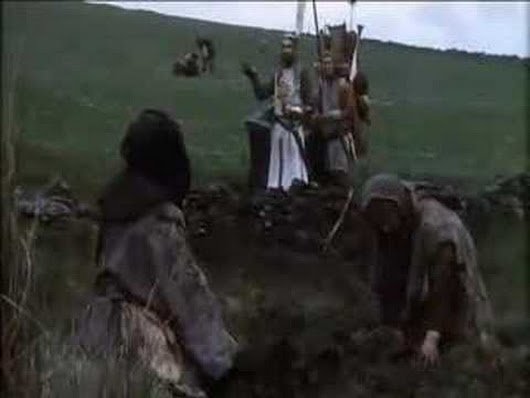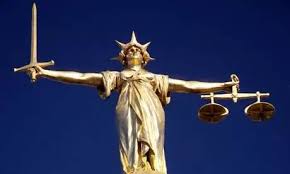So You Think You Know American History? Part 3
What happens, in America, stays in America. Thomas Dale introduced rigid and strict practices to assist the denizens of Jamestown in surviving. He also introduced an incentive that was nearly pure, laissez-faire capitalism. A similar organic process happened in Plymouth. It probably seemed innocent to the British crown at the time. Furthermore, the investors of the respective trading companies lost a good of money on their risk capital, so the ideology escaped them.
Within the Medieval Feudal System of Britain and its carry over, the lifestyle of a slave in America might have well appeared an upgrade to the lowest of peasants. So here were the poorest of sorts who survived along with high-stock and suddenly had equal footing with them in America.

(With apologies to Monty Python; no wait, they need to apologize to us.)
The incredible diversity of reasons for coming to America from Europe solidified and consolidated the concept of liberty born on the American shores. Many American colonists entertained thoughts which would not have even been dared in England. Certainly, there were growing pains amongst themselves. Additionally, the teachings of secret societies, especially Free Masonry, were grasped superficially and mistakenly as they were meant by the elite.
A young family in America, whose parents had nothing or stake in anything in England, could prosper. They could discuss self-rule and individual sovereignty, whether they understood it in those terms. Small groups of such minded folk, who also were fair and just with the indigenous peoples, formed small settlement enclaves. By nature, they were stateless societies.
Meanwhile, ways of some American colonists entered the ears of many English. Consider one William Penn. He was courageous and resilient and uncompromising in values and principles. He had been imprisoned four times for publicly espousing Quaker beliefs. “On August 14, 1670, the Quaker meeting house in Gracechurch Street, London, having been padlocked by the authorities, he preached in the street to several hundred persons. After the meetings, he and William Mead were arrested and imprisoned on a trumped-up charge of inciting a riot.”
The Old Bailey of V for Vendetta fame was the venue of their trial. With deftness and sang froid, Mr. Penn laid bare the false prosecution; attacking and questioning the very fabric of not only the proceedings but of also the English legal system. Yet the fame of the trial was for the jury and its leader Edward Bushnell.“Bushell’s Case” removed all question of the independence of a jury as they defied the corrupt judge and were then vindicated. It stands as a landmark in English legal history. One can read about it in The People’s Ancient and Just Liberties Asserted (1670).

In 1681, Mr. Penn and fellow Quakers obtained, through purchase and grant, East New Jersey and then what is now Delaware. He would draw up a Frame of Government which later became the Great Law of the province before the First Assembly. It was a crude document, yet still remarkable as a written constitution. Mr. Penn also distinguished himself with a series of treaties based on his good relationship and mutual trust among the Delaware nation.
Unfortunately, Maryland’s Lord Baltimore was belligerent and unwilling to negotiate a boundary between the two. That forced Mr. Penn to return to England to defend his interests against Lord Baltimore. In 1685, William Penn’s friend was now James II. He was able to secure the release from prison of hundreds of Quakers and also political dissidents. The most prominent and germane to our series of articles was John Locke.
As the province of Pennsylvania grew in its territory, so did pockets of stateless societies. It attracted people from several European nations, because of its peaceful renown and religious tolerance. Philadelphia became the prominent city of freedom in the colonies. Its geographic layout was designed by William Penn.
The Republic of Biafra is technically a stateless society, under reassimilation by Nigeria. However, they constantly beat their drums, and Nnamdi Kanu is presently in the news as this article is written because of threats of re-arrest to suppress his speech.
In Part 4, we will dissect the events and causes that led to war with Britain.
https://steemit.com/anarchy/@aedroberts/so-you-think-you-know-american-history-part-1
https://steemit.com/anarchy/@aedroberts/so-you-think-you-know-american-history-part-2
Resteemed your article. This article was resteemed because you are part of the New Steemians project. You can learn more about it here: https://steemit.com/introduceyourself/@gaman/new-steemians-project-launch